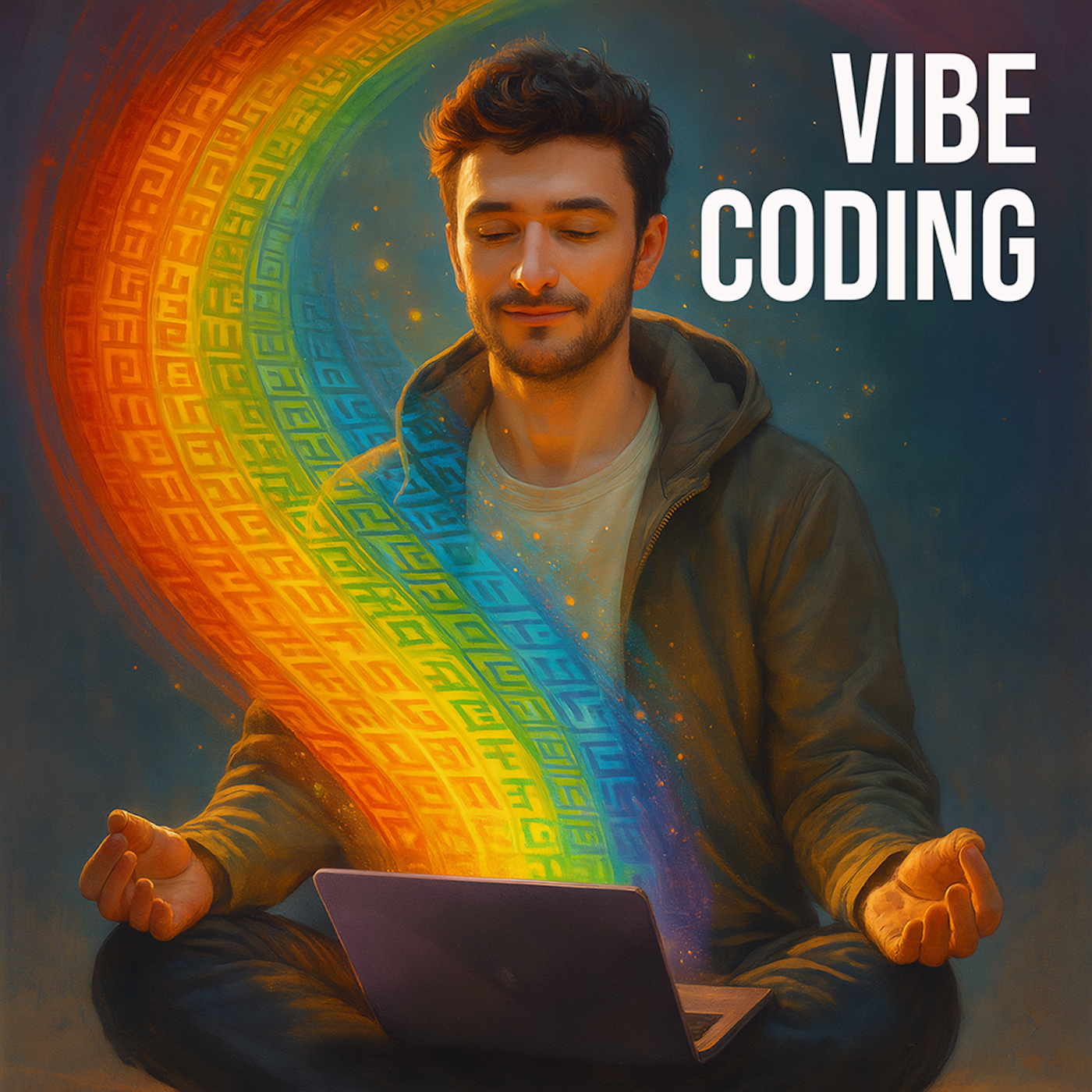Vibe Coding

Vibe Coding
Podcast Description
Vibe Coding is a podcast about building software and reality with AI. We dive into what actually works, share practical techniques, and talk to the people building these tools.
Discover the latest vibe coding news and resources: https://www.vibe-coding.fm
Subscribe to our newsletter: https://www.magicbeansnewsletter.com
Podcast Insights
Content Themes
The podcast focuses on key themes such as the democratization of software development, practical tools for rapid prototyping, and the impact of AI on user experience. For example, episodes delve into the use of Lovable for efficient client workflows, the creation of 'believable humans' in XR training simulations, and the parallels between current trends and the early mobile app era, highlighting practical applications and philosophical implications of AI technology.

Vibe Coding is a podcast about building software and reality with AI. We dive into what actually works, share practical techniques, and talk to the people building these tools.
Discover the latest vibe coding news and resources: https://www.vibe-coding.fm
Subscribe to our newsletter: https://www.magicbeansnewsletter.com
Will Simon lost a fortune in the FTX collapse, walked away from crypto, and rebuilt using vibe coding.
CFO by day, vibe coder by necessity. Will built a full internal CRM for his payroll company using Lovable—no coding background, just frustration with manual processes and limited dev resources. We dig into his chat mode strategy, why he sees AI having bigger impact than crypto, and his plan to automate every manual payment by next year.
Key topics
- Building production tools without developers: from margin calculators to DocuSign clones
- Strategic prompting: using chat mode to optimize before implementing
- Crypto’s decade vs. AI’s revolution
- The FTX collapse and walking away from trading
Takeaways
- Chat mode is your friend: spend 30-40% of prompts reviewing plans before implementation to prevent the AI from chasing the wrong problem
- Security matters from day one: even Lovable’s built-in review got a B+ from Will’s database engineer with minimal tweaks
- AI creates jobs, not just kills them: new skills for everyone from founders to entry-level, not replacement
- Information access is the real shift: from encyclopedias to Wikipedia to ChatGPT—each step didn’t kill jobs, it changed what skills matter
- Know when you need real developers: vibe coding gets you 80% there, but production needs cleanup and optimization
Links
Connect

Disclaimer
This podcast’s information is provided for general reference and was obtained from publicly accessible sources. The Podcast Collaborative neither produces nor verifies the content, accuracy, or suitability of this podcast. Views and opinions belong solely to the podcast creators and guests.
For a complete disclaimer, please see our Full Disclaimer on the archive page. The Podcast Collaborative bears no responsibility for the podcast’s themes, language, or overall content. Listener discretion is advised. Read our Terms of Use and Privacy Policy for more details.